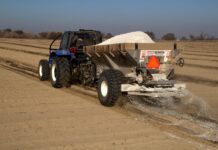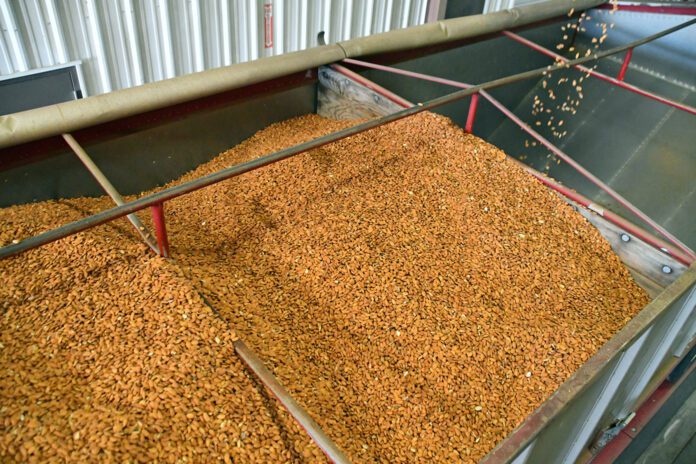
When the trucking firm couldn’t make it before a holiday, Dave Phippen didn’t think much about leaving two shipping containers of processed almonds on chassis in the locked yard overnight. They even removed the keys from their parked semi-tractors.
But Phippen, a partner in the Manteca-based grower-packer-shipper Travaille & Phippen, learned a hard lesson that if thieves want to steal valuables, not much will stop them.
The suspects cut through the fence, hot-wiring the semi-tractors and hauling the loads of nuts to a nearby truck stop where they switched out the stolen tractors for their own, and off they went. Insurance covered most of the loss except for a hefty deductible.
Ten years later, Phippen still follows Western Agricultural Processor Association theft deterrent measures religiously but has added his own rule: Never leave shipments on wheels overnight.
“If we load a container and for any reason they fail to pick up the container, it’s put back in the warehouse,” he said. “It means we have to take [the load] out of the container and put it back in the warehouse.”
Each load consists of 22 pallets, which Phippen admitted were a pain to unload from the trailer, move to the warehouse and reload when the truck finally shows. But he said it’s a small price to pay to minimize potential thefts.
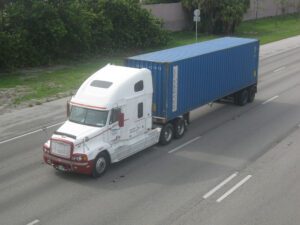
Devil’s in the Detail
Taking those extra steps, remaining vigilant and paying attention to even the smallest details go a long way to reduce the chances of becoming a victim, said Keith Lewis, vice president of operations for Verisk’s CargoNet.
Phippen’s experience with nut theft wasn’t unique, either. Between 2014 and 2016, thieves (many part of organized crime rings) made off with millions of dollars’ worth of nuts. In a six-month period in 2016 alone, more than 30 loads were stolen.
Many of those involved a more sophisticated approach known as “fictitious pick-up,” where truckers with fake credentials impersonate legitimate drivers or companies and haul away loads, Lewis said. By the time the shipper realizes a crime has been committed, the suspect is long gone.
While joint state and federal efforts helped crack rings responsible for many of the thefts in the mid-2010s, heists of large nut shipments still continue today, although at lower levels. Loads of nuts, for example, were stolen in May from facilities in Tulare and Modesto.
As part of client services, CargoNet monitors cargo theft trends of commodities, including food and beverage. Within the food and beverage industry, Lewis said hot items currently include energy drinks and snack foods that contain peanuts.
Nuts are particularly attractive because they’re what law enforcement considers high value and low risk “because you can’t track them once they’re stolen,” he said. “You have to have [food] because you have to eat, so there’s a market for it.”
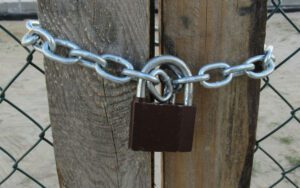
Beware ‘Fictitious Pick-Ups’
Fictitious pick-ups are fairly simple and involve the bad guys taking advantage of tools the transportation industry has set up to increase efficiency, Lewis said. A former Georgia Bureau of Investigation task force agent, he also spent 20 years working in transportation management for third-party logistics providers. Now at CargoNet, a cargo theft prevention and recovery network, Lewis works with clients to help prevent thefts.
Most tree nut processors and handlers are not transportation professionals and instead rely on truck brokers or in some cases, carriers, to provide trucks to haul loads. A broker typically posts an order on an internet load board, which Lewis compared to a match-making app for truckers.
The order includes the pick-up point, equipment, rate, date and destination. An interested trucker then responds that he or she is interested and will take the load.
Based on past investigations and arrests, he said many criminals have worked for trucking companies and know how the load board functions. They also understand how to take advantage of it by removing legitimate orders and reposting them with small changes, like a different driver’s name or different company name.
“We overcomplicate things,” Lewis said. “They aren’t hacking into the system. It’s basically very rudimentary. As bad guys, they take advantage of the speed and efficiency built into the supply chain.”
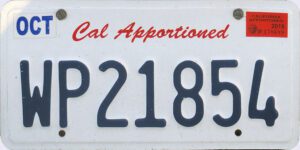
Avoid Pain Down the Road
That’s why he said it’s important that tree nut handlers thoroughly vet the carriers and brokers they use. For example, pick-up appointments should be made at least 24 hours in advance and include the pick-up number, driver’s name and license number, and trucking company name.
Posting entryway warnings that the handler checks all identification and takes photos of all vehicles can act as a deterrent, Lewis said. In addition, installing high-definition surveillance cameras may provide additional evidence should there be an issue.
When the trucker arrives, he said staff should verify the paperwork, comparing the name on the truck to the appointment information. Staff also should ask the driver his or her name and call the broker to verify it.
Lewis recommended taking photos of the driver, the truck and trailer, license plates, VIN number and any ghost lettering on the rig. By ghost lettering, he was referring to faint images left when logos or U.S. Department of Transportation identification numbers are peeled off equipment.
Pay attention to other small differences, too, he said. Check the class designation on the driver’s license. Class C licenses are for non-commercial drivers. Class A licenses are required to operate any combination of vehicles with a gross vehicle weight rating of 26,001 pounds or more. That includes semis.
Lewis said there have been cases where a bogus truck driver arrives to pick up a load with a Class C license. In two training classes he conducted recently in North Carolina, only one person in each session picked up on an incorrect Class C driver’s license.
At the same time, Lewis pointed out details on license plates that can be red flags. In California, most non-commercial automobile plates include the Department of Motor Vehicle’s URL, dmv.ca.gov, printed on the bottom. Plates for commercial semi-tractors in most states, including California, typically say “apportioned.”
He said there have been cases where a semi comes to pick up a load with license plates that carry the DMV website. They ended up being stolen from regular passenger vehicles.
Lewis also recommended hiding multiple covert telemetric tracking units in each shipment. These are similar to Apple Air Tags or the Tile tracker but rely on GPS or cellular signals to provide load location information.
Sealing and locking both doors of a trailer, rather than just the right-hand door, helps reduce the chance they’re tampered with, he said.
Unfortunately, no set of recommendations is fool proof, and criminals may find a way to thwart them. But by paying attention to details, Lewis said, “The little prevention you take now can save you a lot of pain down the road.”

Vicky Boyd | Contributing Writer
A veteran agricultural journalist, Vicky Boyd has covered the industry in California, Florida, Texas, Colorado, the South and the Mid-South. Along the way, she has won several writing awards. Boyd attended Colorado State University, where she earned a technical journalism degree with minors in agriculture and natural resources. Boyd is known for taking complex technical or scientific material and translating it so readers can use it on their farms. Her favorite topics are entomology, weeds and new technology. When she’s not out “playing in the dirt,” as she calls agricultural reporting, Boyd enjoys running, hiking, knitting and sewing.







